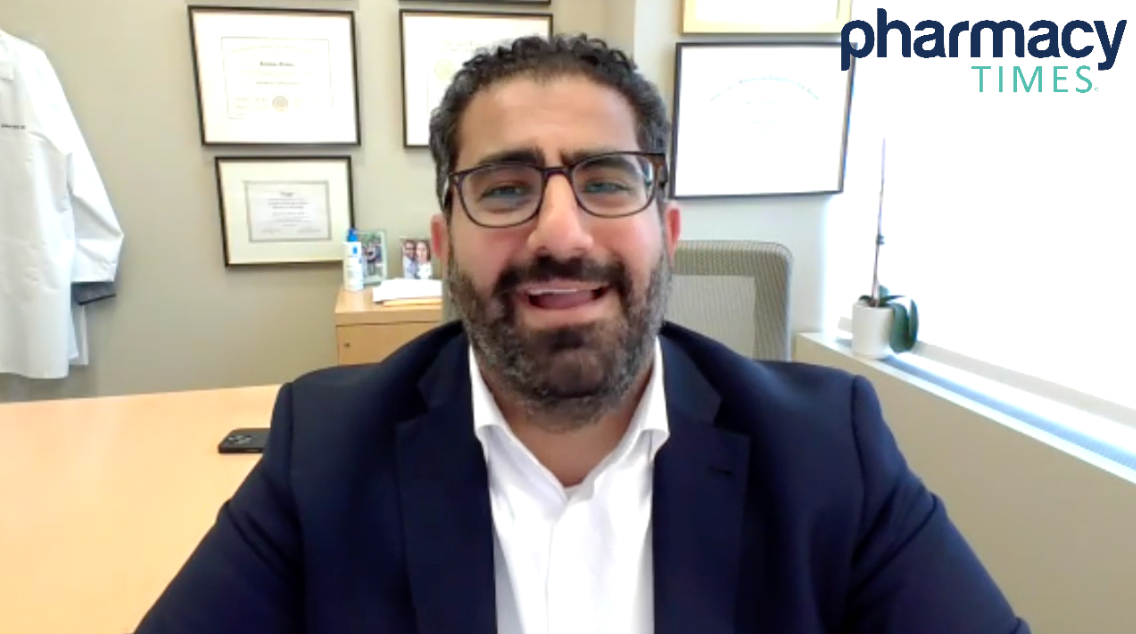
Lung Cancer
Latest News

Latest Videos
CME Content
More News

Zongertinib promises significant advancements in patient care.

The action is supported by 3 ongoing clinical trials, which are evaluating izalontamab brengitecan (iza-bren) in non–small cell lung cancer (NSCLC) and other diseases.
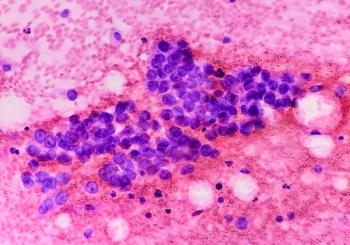
The action is significant for patients with extensive-stage small cell lung cancer (SCLC), a population with limited treatment options.
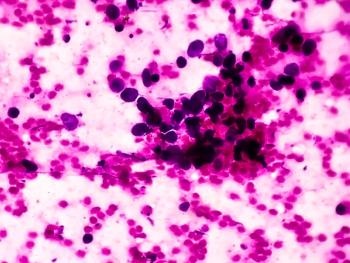
Both preclinical and translational evidence support MET inhibition as a therapeutic approach in patients with small cell lung cancer (SCLC).
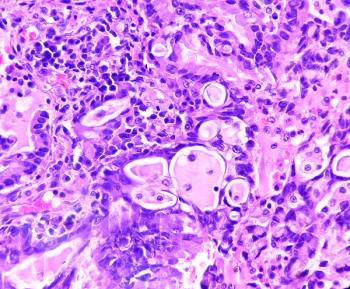
New research links high perilipin 2 expression in lung adenocarcinoma to aggressive disease progression and shorter survival, highlighting potential treatment targets.

Amy C. Nieto delves into the latest advancements in non-small cell lung cancer (NSCLC) treatment, including sunvozertinib, a newly-approved therapy for challenging EGFR exon 20 insertion mutations.

The action is supported by positive safety and efficacy findings from the phase 1a/1b first-in-human Beamion LUNG-1 trial.

Recent data link a higher consumption of ultraprocessed food to increased lung cancer risk, highlighting the need for dietary changes and further research.

Kevin Chen, PharmD, MS, BCOP, CPP; and Amanda Cass, PharmD, BCPS, BCOP, share key insights about ROS1, non-small cell lung cancer, and the newly approved drug taletrectinib.

The combination regimen had stronger benefits in patients with locally advanced or metastatic epidermal growth receptor-mutated (EGFRm) non–small cell lung cancer (NSCLC) than osimertinib alone.
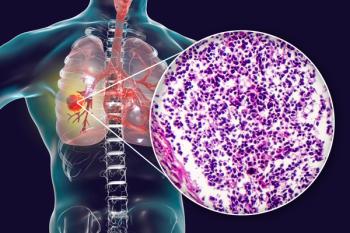
Neladalkib enters phase 3 trials, targeting advanced ALK-positive NSCLC, promising improved outcomes for TKI-naive patients with brain metastases.

Nikita Dahake, MD; Hossein Borghaei, DO, MS; and Yasmine Baca, MS, PhD candidate, MB(ASCP)CM, explore how distinct HER2-alteration subtypes in non-small cell lung cancer (NSCLC) impact survival outcomes, co-mutation profiles, and treatment response to immunotherapy-based regimens.

Steroids hindered the shrinkage of tumors in patients with non-small cell lung cancer (NSCLC) receiving immune checkpoint inhibitor (ICI) therapy.

Sunvozertinib becomes the first and only targeted approval treatment for patients with non-small cell lung cancer (NSCLC) harboring epidermal growth factor receptor (EGFR) exon 20 insertion mutations.

Christopher Danes, PhD, discusses how discrete choice experiment data reveal key differences in patient and caregiver treatment preferences for ALK-positive (ALK+) non–small cell lung cancer (NSCLC) and how pharmacists can use these insights to guide shared decision-making, optimize supportive care, and personalize adherence strategies.

Combining benmelstobart and anlotinib shows promise for patients with squamous non-small cell lung cancer.
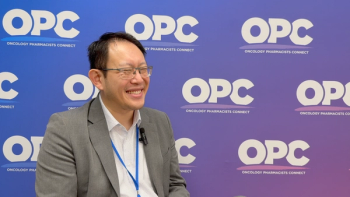
Kevin Chen, PharmD, MS, BCOP, CPP, highlighted key thoracic cancer advances from the 2025 ASCO Annual Meeting.

Datopotamab deruxtecan gains FDA approval, offering new hope for adults with advanced EGFR-mutated non-small cell lung cancer after prior therapies.

At the 2025 Oncology Pharmacists Connect (OPC) meeting, Kevin Chen, PharmD, MS, BCOP, CPP, reviewed several key studies from the 2025 American Society of Clinical Oncology (ASCO) Annual Meeting, highlighting significant advancements in the treatment of small cell and non–small cell lung cancer.

At the 2025 Oncology Pharmacists Connect (OPC) meeting, Mya Tran, PharmD, BCOP, highlights the clinical promise, operational challenges, and evolving role of pharmacists in implementing precision medicine and genomics-driven cancer care.

The emergence of biomarkers plays a critical role in the growing success of treatment.
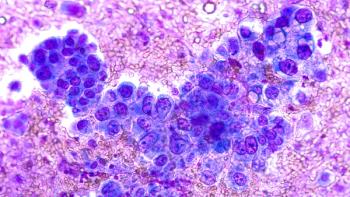
Taletrectinib demonstrated high response rates and was well tolerated among patients with ROS1+ non-small cell lung cancer (NSCLC).
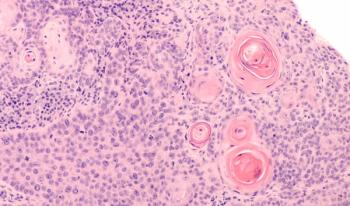
Building on positive event-free survival (EFS) and overall survival (OS) rates in the original analysis of CheckMate 77T, new results indicate sustained survival over 3 years following treatment with nivolumab compared with placebo in non-small cell lung cancer (NSCLC).

Nivolumab (Opdivo) and chemotherapy demonstrated an overall survival benefit at 5 years, affirming its role as a standard of care option.
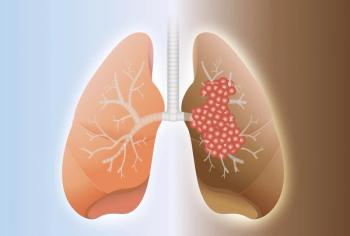
Granted accelerated approval by the FDA in 2024, tarlatamab continues to demonstrate efficacy and safety in patients with small cell lung cancer, with results showing improved overall survival and progression-free survival in patients who had progressed or previously received chemotherapy.


